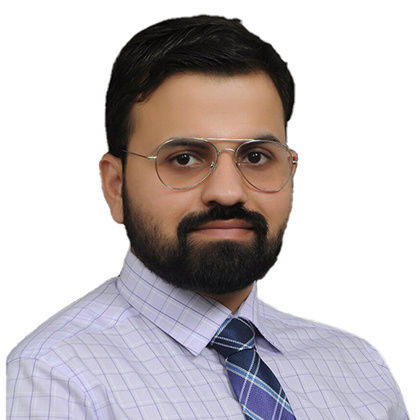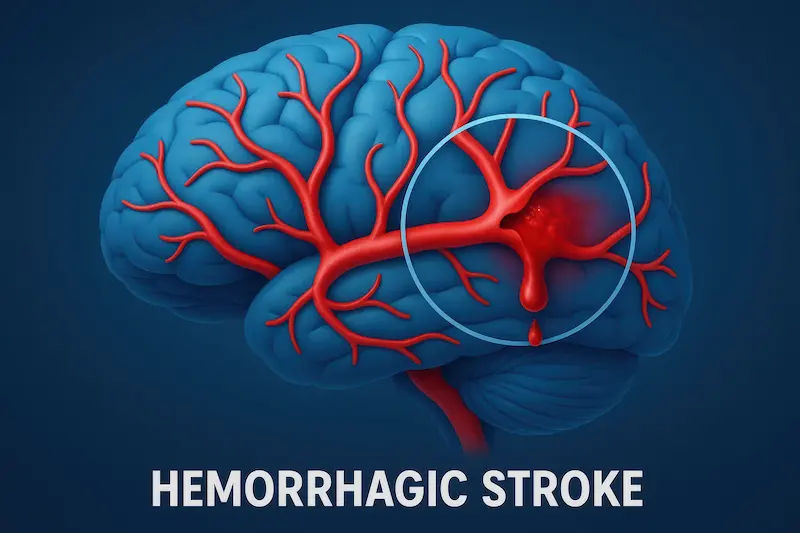Child Eye Cancer Symptoms Explained
Learn about the symptoms of eye cancer in children, including a white glow in the pupil, crossed eyes, vision problems, and eye swelling. Learn about common causes, how it's diagnosed, treatment options and when to seek medical attention.

Written by Dr. J T Hema Pratima
Reviewed by Dr. Dhankecha Mayank Dineshbhai MBBS
Last updated on 22nd Aug, 2025

Introduction
As a parent, your child’s health is your top priority. One condition that may not be on your radar but is important to be aware of is child eye cancer, also known as retinoblastoma. This rare but serious condition affects the eyes of young children, and early detection can make a significant difference in treatment and recovery.
In this article, we’ll explain what child eye cancer is, its symptoms, causes, and how it can be managed. Our goal is to provide you with clear, compassionate information so you can stay informed and take action if needed.
What Is Child Eye Cancer (Retinoblastoma)?
Retinoblastoma is a rare type of eye cancer that primarily affects children under the age of 5. It develops in the retina, the light-sensitive tissue at the back of the eye. While it is uncommon, early detection is crucial to prevent vision loss or more severe complications.
There are two types of retinoblastoma:
1. Hereditary Retinoblastoma – Caused by a genetic mutation passed down from parents.
2. Non-Hereditary or Sporadic Retinoblastoma – Occurs randomly without a family history.
Consult a Top Eye Specialist for the best advice
Common Symptoms of Child Eye Cancer
Recognizing the signs early can help in getting timely treatment. Here are the key symptoms to watch for:
1. White Pupil (Leukocoria)
- The most noticeable sign is a white or yellowish glow in the pupil when light shines on the eye (often seen in photos with flash).
- Instead of the usual red-eye effect, the pupil may appear white or cloudy.
2. Crossed Eyes (Strabismus)
- If your child’s eyes appear misaligned (one eye turns inward or outward), it could be a sign of retinoblastoma.
3. Redness or Swelling in the Eye
- Persistent redness, swelling, or irritation without any infection or injury may be a warning sign.
4. Poor Vision or Loss of Vision
A child may not complain about vision problems, but you may notice:
- Difficulty focusing on objects.
- Bumping into things frequently.
- Lack of interest in visual activities.
5. Eye Pain (Less Common)
- In advanced cases, the child may experience pain in the eye.
If you notice any of these symptoms, consult a pediatrician or an eye specialist immediately.
What Causes Retinoblastoma?
Retinoblastoma occurs due to mutations in the RB1 gene, which controls cell growth in the retina. In hereditary cases, the child inherits a faulty gene from a parent. In non-hereditary cases, the mutation happens randomly.
Risk Factors
- Family history of retinoblastoma.
- Young age (most cases occur before age 5).
- Genetic conditions like 13q deletion syndrome.
How Is Retinoblastoma Diagnosed?
If a doctor suspects retinoblastoma, they may recommend:
1. Eye Exam Under Anesthesia – To get a clear view of the retina.
2. Imaging Tests – Ultrasound, MRI, or CT scans to check tumor size and spread.
3. Genetic Testing – To determine if the cancer is hereditary.
Early diagnosis improves treatment success and helps preserve vision.
Treatment Options for Child Eye Cancer
Treatment depends on the tumor’s size, location, and whether it has spread. Options include:
1. Laser Therapy or Cryotherapy
- Used for small tumors to destroy cancer cells.
2. Chemotherapy
- Shrinks tumors before other treatments.
3. Radiation Therapy
- Targets cancer cells while sparing healthy tissue.
4. Surgery (Enucleation)
- In severe cases, the affected eye may need to be removed to prevent cancer spread.
5. Targeted Therapy
- Newer treatments that attack cancer cells without harming normal cells.
The good news is that most children with retinoblastoma can be cured if detected early.
How Can Parents Support Their Child?
1. Regular Eye Check-ups – Ensure your child’s eyes are examined during routine pediatric visits.
2. Watch for Symptoms – Be alert to any unusual eye changes.
3. Genetic Counseling – If there’s a family history, consider genetic testing for early risk assessment.
4. Healthy Lifestyle – A balanced diet rich in vitamins A and C supports eye health.
5. Emotional Support – If diagnosed, reassure your child and seek counseling if needed.
When to See a Doctor?
Consult an eye specialist immediately if you notice:
- A white glow in your child’s eye in photos.
- Sudden vision problems or misaligned eyes.
- Unexplained redness or swelling.
Final Thoughts
Retinoblastoma is rare but treatable when caught early. As a parent, staying informed and observant can make all the difference. If you have concerns about your child’s eye health, don’t hesitate to seek medical advice. Early action can save your child’s vision.
Consult a Top Eye Specialist for the best advice
Consult a Top Eye Specialist for the best advice
Dr. S Venkateswaran
Ophthalmologist
35 Years • MBBS, PGD (OPTHALMOLOGY)
Tiruvannamalai
Shiva Eye And General Hospital, Tiruvannamalai

Dr. Anchal Gupta
Ophthalmologist
10 Years • MBBS,MS ( Opthamology )
New Delhi
NETRAM EYE FOUNDATION, New Delhi
Dr. Akashdipta Saha
Ophthalmologist
4 Years • MBBS, MD(Ophthalmology), Fellowship in Retina & Vitreous
Delhi
AIIMS, Delhi

Dr. Aditya Sharma
Ophthalmologist
10 Years • MBBS, MS (Ophthalmology)
Chandigarh
Amar Shakti Eye & Gyne Clinic, #1550 Sector 7C Chandigarh, Chandigarh
Dr Kanse Vaibhav
Ophthalmologist
10 Years • MBBS, DO, MS, DNB
Pune
Apollo Clinic, Nigdi, Pune
Consult a Top Eye Specialist for the best advice
Dr. S Venkateswaran
Ophthalmologist
35 Years • MBBS, PGD (OPTHALMOLOGY)
Tiruvannamalai
Shiva Eye And General Hospital, Tiruvannamalai

Dr. Anchal Gupta
Ophthalmologist
10 Years • MBBS,MS ( Opthamology )
New Delhi
NETRAM EYE FOUNDATION, New Delhi
Dr. Akashdipta Saha
Ophthalmologist
4 Years • MBBS, MD(Ophthalmology), Fellowship in Retina & Vitreous
Delhi
AIIMS, Delhi

Dr. Aditya Sharma
Ophthalmologist
10 Years • MBBS, MS (Ophthalmology)
Chandigarh
Amar Shakti Eye & Gyne Clinic, #1550 Sector 7C Chandigarh, Chandigarh
Dr Kanse Vaibhav
Ophthalmologist
10 Years • MBBS, DO, MS, DNB
Pune
Apollo Clinic, Nigdi, Pune


.webp)

